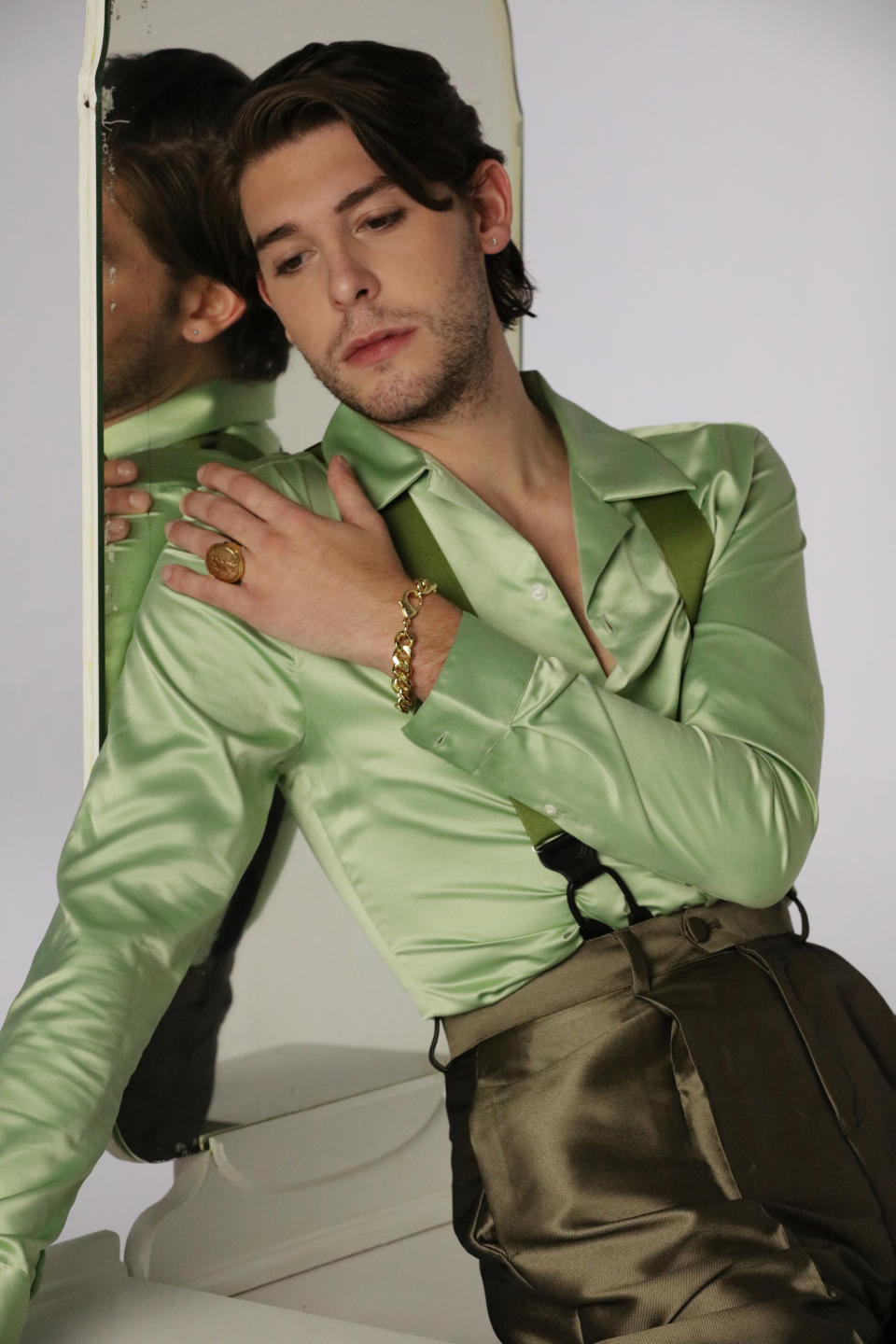Sam Williams Comes From Country Legacy But Carves His Own Path
- Oops!Something went wrong.Please try again later.
- Oops!Something went wrong.Please try again later.
- Oops!Something went wrong.Please try again later.

For his recent appearance at the 14th Annual Academy of Country Music Honors, Sam Williams went with a crisp white suit by Richfresh — a fellow Tennessee native — for something classic. He knew he wanted a neutral, he knew it was an upscale event and he thought the double-breasted cut of the suit jacket would be just that. Yet he also wanted to stand out just a tad: “I’m an unknown artist, so I kind of wanted to turn eyebrows,” he says.
It’s hard to justify considering Williams an unknown artist when, before even releasing her debut album, he dropped a single with none other than Dolly Parton. That, and he comes from quite the music lineage: he is the grandson of country legend Hank Williams and his father Hank Williams Jr. and siblings Holly Williams and Hilary Williams are also musicians. But he’s also new on the scene: after years as an independent artist, he finally signed with Universal two years ago and has just released “Glasshouse Children,” his first album.
More from WWD
Williams grew up in Paris, Tennessee, whose claim to fame is the “world’s biggest fish fry,” and had a very ordinary upbringing away from the country music world, despite his family ties.
“I grew up going on the lake with my friends, hunting and fishing with my dad, playing sports. I grew up really pretty normal, outside of the spotlight of the music world,” he says. “But I was always different, and was interested in music, art and fashion.”

His family history both inspired him to get into music and deterred him from doing the expected.
“I think that if you come from a family of doctors, or a family of lawyers, you just want to be different and you don’t want to do that. I think that’s how I felt for a long time,” he says. “I felt resentful in a way, and I’ve just wanted to be different and stand out. And it took me a long time to realize that I could do both of those things and I could stand out and still carry on a legacy and do it in my own way.”
Case in point: when it came to trying to get Parton on “Happy All The Time,” he and his team tried all the professional avenues before finally going rogue.
“It was like getting into Fort Knox,” Williams says. He ended up writing her a long personal letter explaining the song, in hopes it would sway her. “I just wrote her a two-page letter and was really honest and talked about my life, and my writing, and just what it would mean for me, and how validating it would be to get to sing with her. And she actually loved the song and loved my voice. And I think that the letter was a nice touch, and now it’s history and now we have a song together,” he says.
Williams moved to Nashville in 2015 to attend Belmont University and started writing music a few years in, at the age of 20. The album is a collection of songs spread out over the years (“Happy All The Time,” for instance, was written three years ago), yet much of the work comes more recently, as a result of the passing of his sister Katherine in 2020 from a car accident.
“It’s quite a juxtaposition of grief and healing, of loss and gain, of confusion and of finding yourself,” Williams says of the collective album. It’s also a documentation of his own coming of age (he’s just 24 years old) and finding his own way both in life and in music.
“I think one of the most major themes throughout it is just that to be uncomfortable, to talk about things that aren’t as typical, and just to be vulnerable and to feel strong in that, and to realize that there’s a lot of honor and power in looking in the mirror and reflecting on yourself and your past,” he says. “It is a reckoning of finding yourself, I think. It’s been a roller coaster, and I think that I’m still in the process of that every day as a person and as an artist. But it’s been beautiful to see the fans that really have connected with the album, their responses to it and how it’s impacting them, and catching the listener off guard when they may expect something else when they’re going to click play.”
Sitting down to write can sometimes overwhelm him, as he is curious to explore different musical directions. Yet he steadied himself around the notion of “planting my flag in authenticity and having a foundation in that.”
“I feel like I just had a lot of different influences, and there’s a lot of different things I could do, and a lot of different things I could say, but with this album, I just wanted to be really, really truthful and honest,” he says.
More from the Eye:
In Second Memoir, Gabrielle Union Goes Even Deeper
5 of the Buzziest Films Making Their U.S. Debuts at the New York Film Festival
Best of WWD
Sign up for WWD's Newsletter. For the latest news, follow us on Twitter, Facebook, and Instagram.

